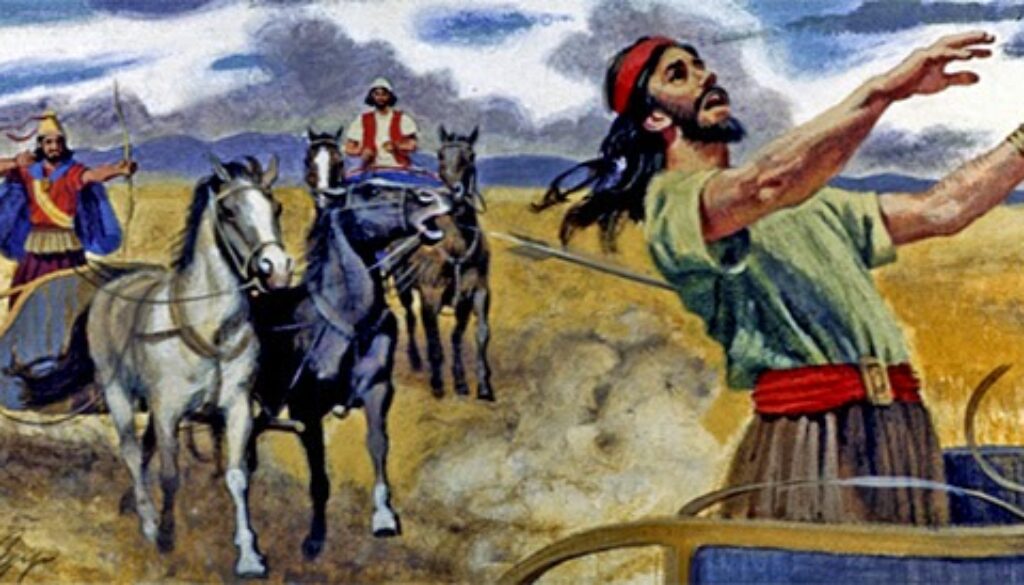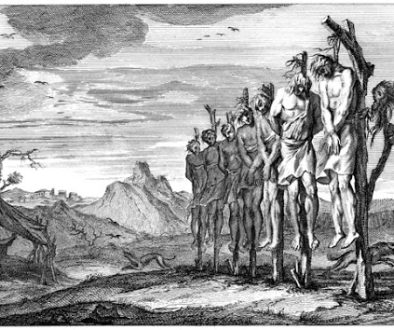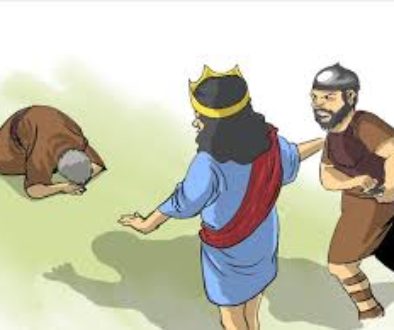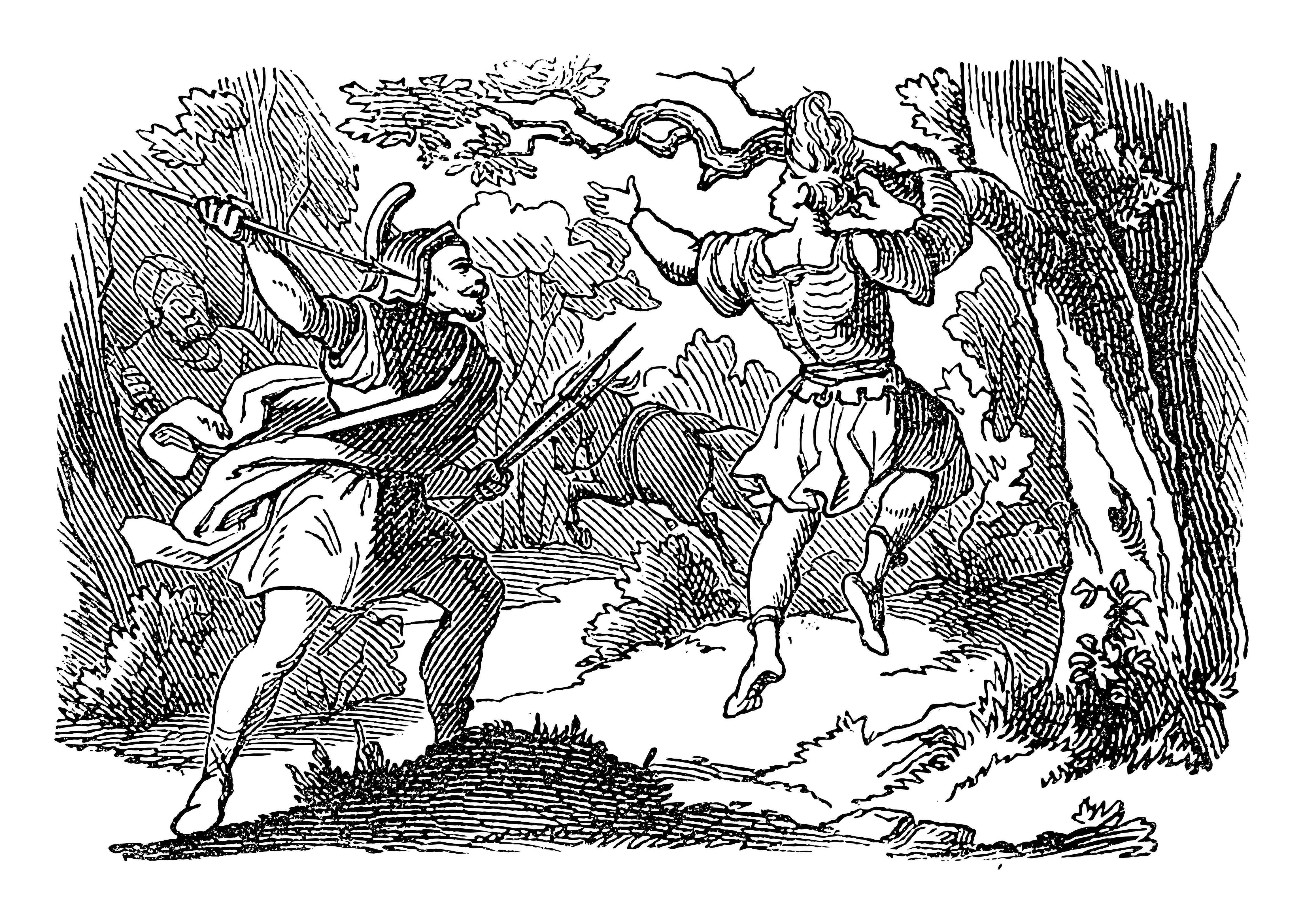2 Kings 9:14-29 Two for One Deal
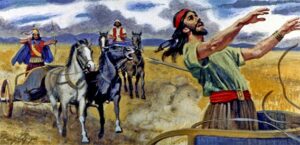
Jehu has just been proclaimed king of Israel. Now he needs to deal with the current king whom God has rejected. He kills both the king of Israel and Judah this day.
God is ready to enact judgment on the house of Ahab. The king of Israel is Ahab’s son and the king of Judah is his son-in-law. The Lord’s judgement said that not a man would be standing of Ahab’s house when He was finished. He held off executing His judgment in Ahab’s lifetime because Ahab repented. Ahab’s sons’ didn’t.
I want to join in this story today. I probably should have joined in yesterday but that’s not the direction I was drawn. I’ll have to fix that when I’m putting together all the stories into book format; just in case anyone ever wants to read it that way. Ok. I surrender. I feel like I need to back up and join the beginning of this story. This means we are actually covering 2 Kings 9:1-29. Here is a link to skip ahead to today’s reading if you don’t want to walk the road from the beginning of the story.
♥ ♦ ♥
Elisha wakes one morning with a heaviness on his heart. He knows just what to do; he takes it to the Lord. He has learned over the years that this means there is something important about to happen and he needs to ‘tune in’ to get the full story.
Elisha’s favorite spot awaits. It is beside the stream on a rock overlooking a small group of rocks that form rapids. This scene reminds him of how even a little bit of an obstacle can produce changes in the flow of the water. It is like that in the spirit too. The Lord often uses the obstacles of the world to stir His people up and enact change. He wishes the ‘changes’ were always good ones but experience has told him different.
Time seems to stand still as Elisha waits for the Lord to answer. Elisha is content to wait.
About the hour of the morning sacrifice in Jerusalem Elisha hears the voice of the Lord.
“It is time.”
Elisha listens intently. “Time for what” he wonders briefly. He knows that the Lord will give him all he needs if he will but be still.
“The time of judgment for Ahab has come. It will be accomplished by the task I had assigned Elijah; the anointing of Jehu.”
“THAT time” thinks Elisha. “It will be done this day” Elisha promises the Lord.
Elisha rises from his spot and goes in search of one of his most trusted students; Kemeul. He is not only trustworthy but fleet of foot. Elisha needs both these qualities to accomplish the task the Lord has set before him.
Kemeul is clearing away the morning meal’s dishes from the tables when Elisha finds him. He has kitchen duty today. All the prophets share the duties of caring for their home.
“Have you eaten master?”
“No. I have not.”
“Let me serve you then. It will only take a moment.”
“Thank you for your offer but I have another matter that we need to discuss. It is urgent and requires your attention.”
Kemeul sits the dishes he was holding back down on the table and straightens up.
“How may I be of service master.”
“Walk with me my son” says Elisha with a concerned look on his face. He nods to the other kitchen worker.
Elisha and Kemeul walk towards Elisha’s spot. As they walk Elisha explains the task he has for Kemuel.
“This task is of utmost importance and urgency. ‘Tie up your garments, and take this flask of oil in your hand…’” Elisha passes Kemeul a flask of anointing oil that he produced from the folds in his robe. “…and go to Ramouth-gilead. And when you arrive, look there for Jehu the son of Jehoshaphat, son of Minshi. And go in and have him rise from among his fellows, and lead him to an inner chamber. Then take the flask of oil and pour it on his head and say, ‘Thus says the Lord, I anoint you king over Israel.’ Then open the door and flee; do not linger” (verses 1b-3).
Kemeul carefully tied the flask into his belt. He then took the tails of his garment, ran them between his legs and secured them about his waist. As soon as he was done he ran from Elisha’s presence. Elisha watched him as he went.
“I know You will protect him on this journey Lord. Give him also the words to say when he reaches Jehu. There is much Jehu needs to know in order to complete Your assignment.”
Kemeul runs the entire way. He has always been able to run long distances but this trip he seems to have even greater stamina than usual. He isn’t even tired or breathing hard when he reaches the gates of Ramouth-gilead. He stopped at the city well for a quick drink of water before going in search of Jehu. He knows he will not be able to stop on the way out as Elisha told him to flee and not to linger.
Kemeul heads to the garrison. This is the place he is most likely to find Jehu as he is the chief commander of Israel’s army. Kemuel sees a group of commanders gathered together on the steps of the main building of the garrison. He boldly approaches the group.
“I have a word for you, O commander” (verse 5b).
All heads turn in Kemeul’s direction.
“To which of us all?” (verse 5c) asks Jehu with a wave of his hand to indicate the entire group.
“To you, O commander” (verse 5d) replies Kemeul while locking eyes with Jehu.
Jehu nods his head and rises from his place. The two of them walk into the building and Kemeul shuts the door behind them. Kemuel removes the flask of oil from his belt and steps up to Jehu. Jehu waits where he is. He is not intimidated by Kemeul’s nearness. Kemuel holds out the oil towards Jehu. Jehu recognizes the flask and quickly kneels. Kemeul begins pouring the oil over Jehu’s head. As he pours he speaks the words of the Lord over Jehu.
“Thus says the Lord, the God of Israel, I anoint you king over the people of the Lord, over Israel” (verse 6b). As Kemeul finishes these words that Elisha had sent him with the Spirit of the Lord expounds on the message. “And you shall strike down the house of Ahab your master, so that I may avenge on Jezebel the blood of my servants the prophets, and the blood of all the servants of the Lord. For the whole house of Ahab shall perish, and I will cut off from Ahab every male, bond or free, in Israel. And I will make the house of Ahab like the house of Jeroboam the son of Nebat, and like the house of Baasha the son of Ahijah. And the dogs shall eat Jezebel in the territory of Jezreel, and none shall burry her” (verses 7-10a).
As soon as Kemeul had finished speaking he turned away from Jehu, grasped the door handle and ran. He ran down the steps where the rest of the commanders waited. He ran past the well where he had stopped earlier for a drink of water. He ran through the gates of Ramouth-gilead. And he ran all the way back to the place of Elisha.
The commanders watched Kemeul run past them but none reached out to try and stop him. Jehu followed Kemeul from the house after only a moment and he stood atop the stairs watching Kemeul leave. While he watched he took his sleeve and wiped the oil that had run down his face.
After Kemeul exited the gates of the city the commanders looked at one another. They then noticed that Jehu stood among them. He had a strange look on his face.
“Is all well? Why did this mad fellow come to you?” (verse 11b) one of his closest friends asked.
“You know the fellow and his talk” (verse 11c) replied Jehu with a far away look in his eyes.
“That is not true; tell us now” (verse 12a) pleaded his commanders.
“Thus and so he spoke to me, saying, ‘Thus says the Lord, I anoint you king over Israel’” (verse 12b).
The entire group appeared to move as one as they all leapt to their feet, removed their cloaks and laid them down as a carpet for Jehu’s feet. There was not left one space where Jehu could set foot on the once bare stairs where it was not covered with the cloak of his loyal servants. As soon as the cloaks were laid another of his servants took the ram’s horn trumpet he kept tied at his waist and blew a long loud note upon it. The entire company then shouted as one, “Jehu is king” (verse 13b).
Story part 2.
Jehu looked about him at the men standing before him. They are all the military leaders of Israel. Their actions state that they have vowed to follow him as he delivers the people of Israel from the hand of Joram, former king of Israel. He must be certain though as hesitation or leaking of this information to Joram could prove disastrous.
“If this is your decision, then let no one slip out of the city to go and tell the news in Jezreel” (verse 15b).
Joram had been wounded in battle here at Ramouth-gilead four days ago and had gone back to Jezreel to be healed. He remained there and word had come that Ahaziah king of Judah had come to meet him there. It was unknown how many soldiers he had brought with him and, as Joram’s brother-in-law, where his allegiances would lay.
Two of the commanders took off with haste to make the gates of the city secure while Jehu assembled his company. Jehu’s company left within the hour and drove hard to Jezreel. They would be the only ones through the gate until he returned with news of his success.
Jehu and company pressed their horses hard as they ate up the distance between the two cities. When they were within sight of the watchmen of Jezreel word was sent to Joram.
“I see a company” (verse 17b) called down the watchman.
Joram called for one of his servants.
“Takd a horseman and send to meet them, and let him say, ‘Is it peace?’” (verse 17c).
The servant quickly passed the message and a horseman galloped from the city gates. He came directly to Jehu and his advancing company. He stood in the center of the road. Jehu had to rein his horses in to address him.
“Thus says the king, ‘Is it peace?’” (verse 18b) asked the king’s horseman.
Jehu answered him with steel in his voice, “What do you have to do with peace? Turn around and ride behind me” (verse 18c).
The rider knew not to challenge Jehu. His tone and message left no doubt that it was NOT peace that awaited the conclusion of this journey. He moved his horse to the side of the road and waited as Jehu passed on by. He then moved his horse into formation with the company of Jehu. They continued on towards Jezreel.
The watchman in Jezreel observed all of this taking place. He called down to the king.
“The messenger reached them, but he is not coming back” (verse 18d).
Joram called his servant again and had him dispatch another horseman with the same message.
The second horseman rode hard to meet the advancing company before they reached Jezreel. He would need as much time as possible to warn the city if the answer was not favorable. He pulls to a stop a few lengths in front of Jehu’s advancing company and waits.
Jehu again reins in his horse and slows the company to address the rider.
“Thus the king has said, ‘Is it peace?’” (verse 19b) inquires the rider.
“What do you have to do with peace? Turn around and ride behind me” (verse 19c) again replies Jehu.
This rider also understands Jehu’s words and is willing to join him. He falls into place with the first horseman sent by the king. The company picks up speed again and continues on towards Jezreel.
The watchman sees the second rider join in the company. He squints hard to make out more of the advancing company and then calls down to the king again.
“He reached then but he is not coming back. And the driving is like the driving of Jehu the son of Nimshi, for he drives furiously” (verse 20b).
Joram is relieved to hear this news. Jehu is the commander if his army. Surely he has a good reason for coming to Jezreel. He is probably bringing important news of the battle with Hazel king of Syria.
“Make ready” (verse 21a) orders Joram.
His attendants and charioteers get everything ready quickly for him. Ahaziah’s attendants ready his chariot also. Both kings take their places and ride out to meet Jehu. They meet up just outside the city at the vineyard Ahab had stolen from Naboth the Jezreelite.
“Is it peace, Jehu” (verse 22b) asks Joram.
“What peace can there be, so long as the whorings and sorceries of your mother Jezebel are so many” (verse 22c) barks Jehu in response.
Joram’s eyes widen in surprise and he recognizes that his life is in danger. He reined about his horse and chariot and fled.
“Trechery, O Ahaziah!” (verse 23b) he calls out as he flees.
Jehu isn’t about to let him get away. He draws an arrow from his quiver and notches it in his bow. He pulls back with his full strength and sends the arrow flying through the air. His aim is dead on as his arrow strikes Joram between the shoulders and sinks deep into his body. It penetrates his heart and Jehu sinks to the floor of his chariot. His hands still clung to the rein and the horses came to a halt, awaiting instructions from their driver.
Jehu calls out to his aid Bidkar, “Take him up and throw him on the plot of ground belonging to Naboth the Jezreelite. For remember, when you and I rode side by side behind Ahab his father, how the Lord made this pronouncement against him: ‘As surely as I saw yesterday the blood of Naboth and the blood of his sons – declares the Lord – I will repay you on this plot of ground.’ Now therefore take him up and throw him on the plot of ground, in accordance with the word of the Lord” (verses 25-27).
Ahaziah king of Judah watches in horror as the events unfold. Bidkar drives his chariot over to that of Joram and steps down. He and his archer step down and move to carry out Jehu’s instructions. When Bidkar and his archer take hold of Joram Ahaziah is shaken as if awakened from a dream. He reins his horses around and takes flight towards Beth-haggan. He whips his horses into a frenzy in an effort to escape Jehu.
Jehu attention is dragged from Joram by the sound of Ahaziah’s horses hooves hitting the ground. He calls out to his company.
“Shoot him also” (verse 27b).
Together they pursue Ahaziah. As the road begins its ascent of Gur, which is by Ibleam an archer finds his mark. Ahaziah is severely wounded but his chariot driver continues on. Having seen the king fall, Jehu’s company turns back to Jezreel. There is still much work to be done there.
Ahaziah’s driver and his servants continue on until they reach Megiddo. Upon reaching the city they search for a healer. By the time one is located it is too late. Ahaziah lies dead in his chariot. His servants cleaned him and then carried him in his chariot back to Jerusalem. There they will bury him in his own tomb with his fathers in the city of David.
Jehu returns to his work.
(to be continued)
♥ ♦ ♥
I hope you don’t mind that I backed up. I couldn’t turn it loose. I sure hope Jehu turns out to be a better king than those of Ahab’s family. I can’t tell from my chart. I guess we will find out as we continue the story. He certainly cleaned up the mess of Ahab for the Lord.
Jehu didn’t seek the position of king but neither did he reject it when it was thrust upon him. He also wasn’t willing to try and take it on his own. He heard the words of the Lord and humbly reported them to those who questioned him. THEY called out their allegiance and agreement to the Lord’s plan. Only then was he willing to step into that role. He let God open the doors for him.
Jehu didn’t have the long wait David had between being anointed and appointed. Sometimes God moves us slowly to the place He has created for us and other times He moves us quickly. David had a lot of learning to do before he was ready to rule a nation. He was a leader of sheep, not men, when anointed. Jehu had already been trained in many of the skills he would need. He would receive the rest of his training ‘on the job’. Only He knows what it will take and when we will be ready for what He has planned for us. And His plans are ALWAYS wonderful!
Father God, thank You for the training You have done in me over my lifetime. I was never ‘anointed’ to fill a specific role. I was once given a prophecy that I had MANY YEARS worth of growth to come into. Thank You for NEVER giving up on me and for teaching me as we walk along. I would NOT be who I am or where I am today without each and every one of those lessons. Keep directing me daily Lord to the places You have planned for me to go and to the things You have ordained for me to do. I trust You! Your plans are ALWAYS BEST.

